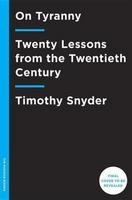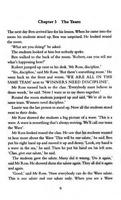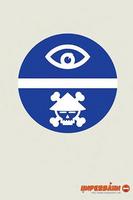Subject

photo credits: Wikimedia Commons
Totalitarianism is a form of government and a political system that prohibits all opposition parties, outlaws individual and group opposition to the state and its claims, and exercises an extremely high if not complete degree of control and regulation over public and private life. It is regarded as the most extreme and complete form of authoritarianism. In totalitarian states, political power is often held by autocrats, such as dictators (totalitarian dictatorship) or absolute monarchs, who employ all-encompassing campaigns in which propaganda is broadcast by state-controlled mass media in order to control the citizenry.As a political ideology in itself, totalitarianism is a distinctly modernist phenomenon, and it has very complex historical roots. Philosopher Karl Popper traced its roots to Plato, Georg Wilhelm Friedrich Hegel's conception of the state, and the political philosophy of Karl Marx, although Popper's conception of totalitarianism has been criticized in academia, and remains highly controversial. Other philosophers and historians such as Theodor W. Adorno and Max Horkheimer trace the origin of totalitarian doctrines to the Age of Enlightenment, especially to the anthropocentrist idea that "Man has become the master of the world, a master unbound by any links to nature, society, and history." In the 20th century, the idea of "totalitarian, and the Fascist State — a synthesis and a unity [also translated as 'unit'] inclusive of all values—interprets, develops, and potentates the whole life of a people" was first developed by Italian Fascists, and concurrently in Germany by the jurist and Nazi academic Carl Schmitt during the Weimar Republic in the 1920s. Some scholars and historians have considered Vladimir Lenin, co-founder of the Russian SFSR and later Soviet Union, to be one of the first to attempt to establish a totalitarian state. Benito Mussolini, the founder of Italian Fascism, called his regime the "Totalitarian State": "Everything in the State, nothing outside the State, nothing against the State". Schmitt used the term Totalstaat (lit. 'Total state') in his influential 1927 work titled The Concept of the Political, which described the legal basis of an all-powerful state. By 1950, the term and concept of totalitarianism entered mainstream Western political discourse. Furthermore, this era also saw anti-communist and McCarthyist political movements intensify and use the concept of totalitarianism as a tool to convert pre-World War II anti-fascism into Cold War anti-communism.Totalitarian regimes are different from other authoritarian regimes, as the latter denotes a state in which the single power holder, usually an individual dictator, a committee, a military junta, or an otherwise small group of political elites, monopolizes political power. A totalitarian regime may attempt to control virtually all aspects of social life, including the economy, the education system, arts, science, and the private lives and morals of citizens through the use of an ideology. It can also mobilize the whole population in pursuit of its goals. Source: Wikipedia (en)
Works about totalitarianism 13
Kontrollierte Freiheit. Anleitung zur digitalen Selbstbestimmung
On Tyranny
The Circle
L'Enfant de Noé
The Wave
The Origins of Totalitarianism
-
First they came...
Nineteen Eighty-Four
Dix ans au pays du mensonge déconcertant
Escape from Freedom
Animal Farm
-
Marxism, Fascism and Totalitarianism: Chapters in the Intellectual History of Radicalism
D'un mensonge déconcertant à l'autre
Subject - wd:Q128135










